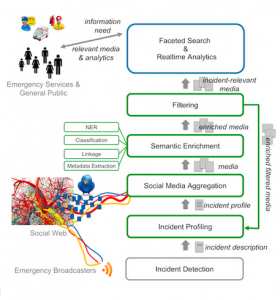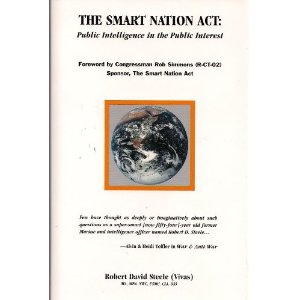
Twitcident: Filtering Tweets in Real-Time for Crisis Response
The most recent newcomer to the “tweetsourcing” space comes to us from Delft University of Technology in the Netherlands. Twitcident is a web-based filtering system that extracts crisis information from Twitter in real-time to support emergency response efforts. Dutch emergency services have been testing the platform over the past 10 months and results “show the system to be far more useful than simple keyword searching of a twitter feed” (NewScientist).
Here's how it works. First the dashboard, which shows current events-of-interest being monitored.
Click to see origiinal post with screen shots.

I look forward to following Twitcident's developments. I'd be particularly interested in learning more about how Dutch emergency services have been using the tool and what features they think would improve the platform's added value.
Berto Jongman: Here is the reference paper:
Twitcident: Fighting Fire with Information from Social Web Streams
See Also:
Graphic: Twitter as an Intelligence Tool
Howard Rheingold: News Filters for the Future – Technical Services or Human Networks?
Howard Rheingold: Open Source Intelligence Meets Real-Time News and Data Curation – SwiftRiver
Mini-Me: Bin Laden death-detecting analytics service signs partnership with Twitter
Patrick Meier: Crisis Mapping Syria – Automated Data Mining and Crowdsourced Human Intelligence
Patrick Meier: Mobile Technologies, Crisis Mapping, & Disaster Response
Paul Fernhout: Open Letter to the Intelligence Advanced Programs Research Agency (IARPA)






